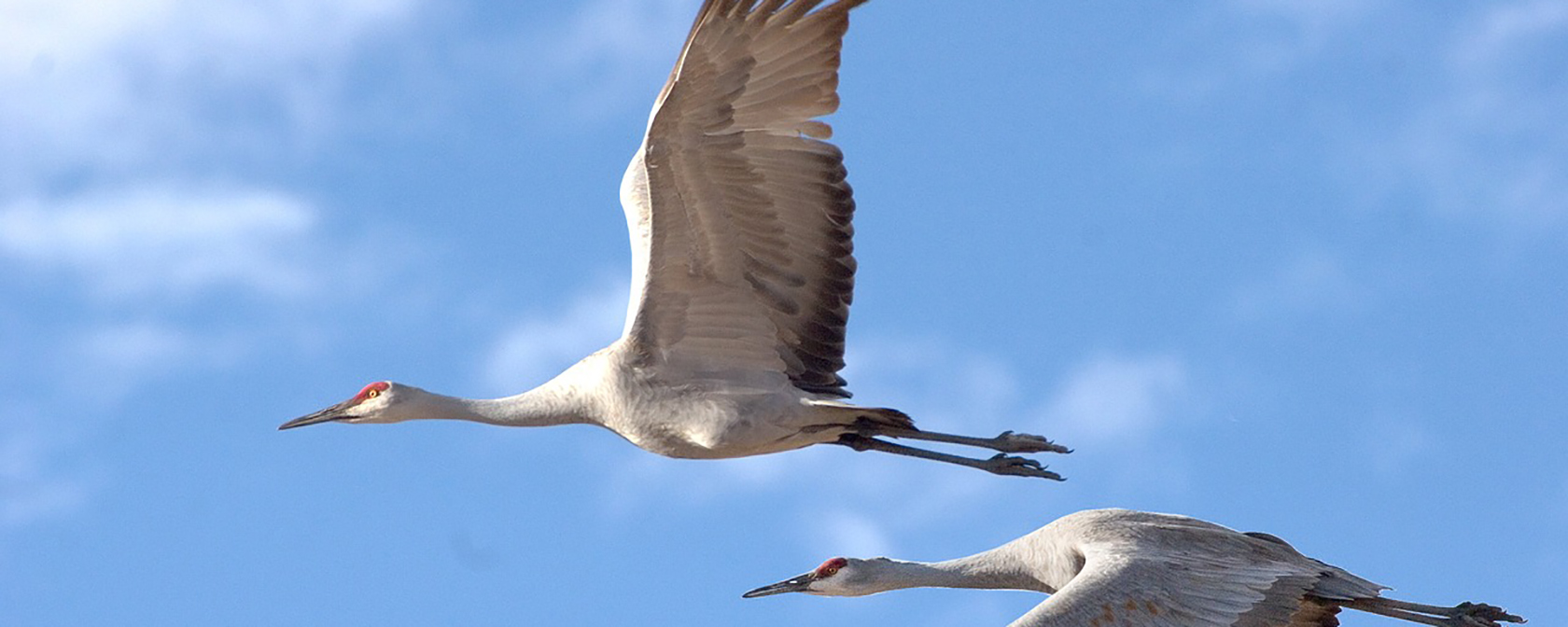Just in time for World Migratory Bird Day this Saturday, there is good news for birds.
The Department of the Interior is proposing to revoke a rule issued in the final weeks of the Trump administration that prevents the federal government from holding industries responsible for bird deaths caused by actions taken in the course of their operations. Under the proposal, the department would implement the Migratory Bird Treaty Act (MBTA) as it did previously, prohibiting incidental killing and requiring industries to limit bird deaths through practices such as covering oil waste pits and marking power transmission lines to make them more visible.
Passed in 1918, the MBTA is one of the United States’ oldest wildlife protection statutes, created in response to wholesale decimation of birds in that era, in part to supply feathers to decorate women’s hats. The MBTA prohibits the harming or sale of almost all birds native to the United States or of their parts, including feathers, nests, and eggs. It also codifies U.S. treaties with Canada, Mexico, Japan, and Russia protecting migratory birds shared by our countries.
The MBTA is credited with saving many beloved species from extinction, including the wood duck, snowy egret, and sandhill crane. It is also a powerful tool for protecting bird species that are not endangered or threatened. For example, as a result of the 2010 Deepwater Horizon oil spill, which killed more than one million birds, the petroleum company BP paid a $100 million fine under the MBTA. The money went to the North American Wetlands Conservation Fund and financed bird habitat restoration in the area of the spill.
The MBTA’s legacy of protection came under fire in 2017, when the Trump administration issued a solicitor’s opinion asserting that the MBTA allowed foreseeable and avoidable bird deaths from industrial hazards. This policy broke with decades of precedent under Republican and Democratic administrations alike. Indeed, under this interpretation, BP would not have been held responsible for the bird deaths resulting from the Deepwater Horizon oil spill. Despite an August 2020 federal court ruling that the solicitor’s opinion was unlawful and overwhelming public opposition, the administration codified the solicitor’s opinion in the January rule.
Now, by reverting to the government’s previous interpretation of the MBTA, the Biden administration would reestablish the law’s protections and reengage the industrial sector as a partner in developing and implementing practices and technologies that prevent harm to birds. This is increasingly important as the United States scales up renewable energy technologies, such as wind turbines, a known cause of bird mortality.
In related news, the Bird-Safe Buildings Act has been reintroduced in the Congress. Up to a billion birds die every year in collisions with buildings. Relatively simple and inexpensive designs and materials incorporated into buildings, such as patterned, opaque, or UV-reflecting glass, can reduce these collisions. H.R. 1986, led by Reps. Mike Quigley, D-Ill., and Morgan Griffith, R-Va., and S. 791, led by Sen. Cory Booker, D-N.J., would require the use of bird-friendly construction practices for new or renovated federal public buildings. This legislation passed the House last year as part of the Moving Forward Act, a package of reforms designed to restore America’s aging infrastructure. We will work to advance this valuable legislation in the 117th Congress.
Good news on this front comes not a moment too soon. A study published in Science magazine last year found that North America has lost nearly three billion birds since 1970—a loss of more than one in four birds. A National Audubon Society study, also last year, reported that nearly two-thirds of North American birds are threatened by climate change. By preventing easily avoidable bird fatalities, restoration of the MBTA’s protections and passage of the Bird-Safe Buildings Act would alleviate these grim findings. We have an opportunity to truly provide safe air space creating protected flight for these complex aviators. That is something to applaud as we celebrate birds this weekend.




